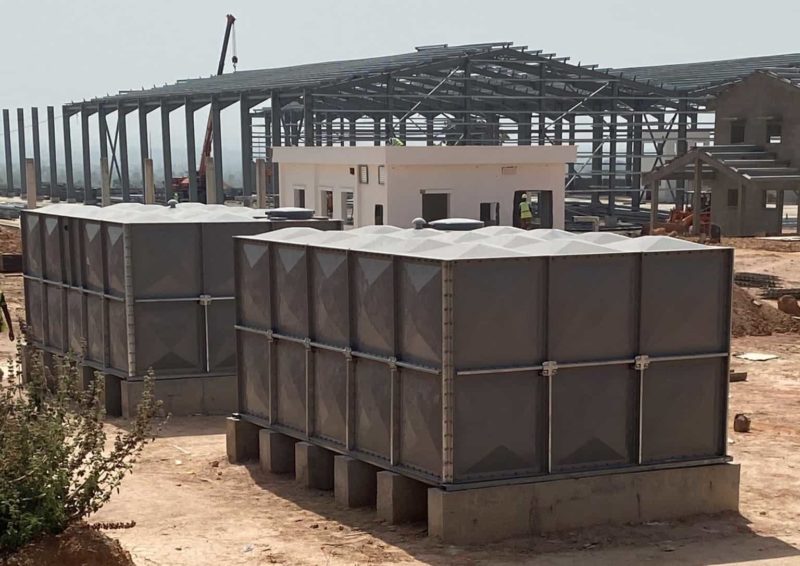Enhanced with efficient equipment, the fertilizer blending plant facility under construction in Kaduna State will be able to produce 120 metric tons of customized fertilizer blends and reach 1.3 million smallholder farmers in the area. OCP Africa Fertilizers Nigeria Ltd. received a $1.4 million USAID West Africa Trade & Investment Hub grant to purchase new equipment that will produce higher-yielding fertilizers and address food insecurity in the country. OCP Africa contributed $11.7 million to build a new fertilizer blending plant that’s currently under construction in Kaduna, Nigeria.

By 2024, the plant is projected to bring in nearly $45 million and serve than 1.3 million Nigerian smallholder farmers through agricultural trainings and fertilizer sales.
Caleb Usoh, Country Manager for OCP Africa Fertilizers Nigeria, says the new USAID West Africa & Investment Hub support will improve farmers’ crop yields and incomes, as well as increase employment at the company’s new factory.
“Over the years, farmers in Nigeria have recorded poor farm yields due to the quality of fertilizers,” says Usoh. “The production and distribution of blended fertilizers combined with the training will help farmers produce better quality crops as well as increase their yields, which will lead to higher earnings and better returns for their farming business.”
OCP Africa, a leader in the production of phosphate-based fertilizers, will install modern blending equipment in its new fertilizer plant. The new addition will help bridge the gap where there is a paucity of specialized fertilizers and grow crops on a large scale to increase food access.
Emmanuel Azaino, Research and Development Director of Trade & Investment Hub, says that currently consumers pay too much for basic food items because farmers don’t have quality fertilizer to yield abundant crops.
“The [food] prices are very high. The average person struggles to afford basic food items like rice, maize and soybean,” says Azaino. “Farmers aren’t yielding enough because they can’t afford fertilizers with the best nutrients or have travel too far to pick it up.”
OCP Africa expects at least 1.3 million smallholder farmers within the catchment area of the plant will benefit from the company’s increased operations.
Farmers will also be able to easily access the fertilizer from the 36 locations that OCP Africa will establish across 13 Nigerian states.
The fertilizer blending equipment will efficiently produce products to meet the demand.
The machine can manufacture 120 metric tons of fertilizer per hour and the plant can store up to 10,000 metric tons. The new fertilizer blends will increase farmers’ yields by 50 to 85 percent per hectare depending on the type of crop, which may include rice, maize, soybean, cassava, tomato and other staple crops in Nigeria.
Also, OCP Africa will lead trainings on good agricultural practices and soil testing for the 75,000 farmers.
Michael Clements, Chief of Party of the Trade Hub, says that the investment will enhance already existing efforts to build sustainable agriculture in Nigeria.
“This project is quite a unique one, and we are excited to partner with OCP Africa to complement the Nigerian government’s policy to leverage locally available resources to expand food production capabilities,” says Clements.
OCP Africa Plant To Hire Locals
Through this co-investment partnership, 826 jobs are expected to be created, including careers for staff at the new facility, organizers who will lead the farming trainings and workers at the 36 locations where OCP Africa will sell products.
Also, in support of the Trade Hub’s goal to ensure that traditionally marginalized groups have equal access to job opportunities in the agricultural sector, at least 50 percent of the 826 jobs will be dedicated to women and youth.
The end goal of the project is to foster a thriving agricultural-business ecosystem in Nigeria.